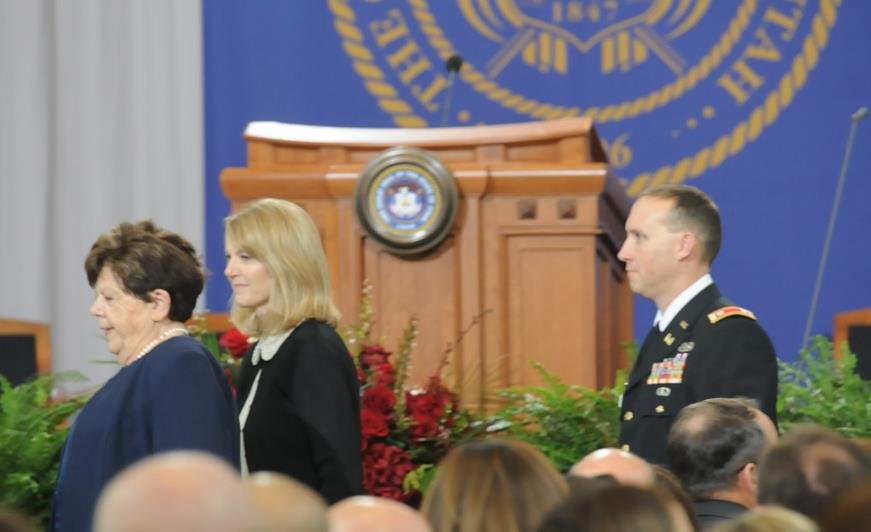Utah Governor Spencer Cox has sparked controversy and criticism for his remarks on diversity, equity and inclusion (DEI) programs in higher education institutions. In a recent interview, Cox said that some of these programs are “divisive” and “harmful” and that he would not support them.
Cox made his comments on the Doug Wright Show on KSL NewsRadio on Dec. 16, 2023. He was asked about his views on DEI programs in Utah colleges and universities, which aim to promote diversity, equity and inclusion among students, faculty and staff.
Cox said that he supports diversity and inclusion, but not “at the expense of unity.” He said that some DEI programs are “going too far” and “creating division” among people. He also said that some of these programs are “indoctrinating” students with “a certain ideology” that he does not agree with.

“I’m not going to support those programs,” Cox said. “I think they’re harmful. I think they’re divisive. And I think there’s a better way to do it.”
Cox did not specify which programs he was referring to, but he said that he has heard “horror stories” from students and parents who have experienced or witnessed “some of the things that are happening on our campuses.”
How did people react?
Cox’s remarks have drawn backlash from defenders of DEI programs, who say that these programs are essential for creating a more equitable and inclusive society. They also say that Cox’s statements are based on misinformation and misunderstanding of what DEI programs do.
Among the critics of Cox’s remarks are:
- Darlene McDonald, the chair of the Utah Black Roundtable, a coalition of Black organizations and leaders in the state. McDonald said that she was “extremely concerned” about Cox’s statement and the direction that Utah is taking. She said that DEI programs are not divisive, but rather “help us understand each other better and create a more cohesive society.”
- Jeanetta Williams, the president of the NAACP Salt Lake Branch. Williams said that Cox’s remarks were “very disappointing” and “very alarming.” She said that DEI programs are not indoctrinating students, but rather “educating them on the history and the culture of different groups of people.”
- Noor Ul-Hasan, a Muslim community activist and a member of the Utah Board of Higher Education. Ul-Hasan said that Cox’s remarks were “very hurtful” and “very ignorant.” She said that DEI programs are not harmful, but rather “beneficial for everyone, especially for marginalized communities.”
- David Parker, the president of the Utah Valley University Faculty Senate. Parker said that Cox’s remarks were “misinformed” and “misguided.” He said that DEI programs are not creating division, but rather “building bridges” among people. He also said that Cox’s remarks were “an insult” to the faculty and staff who work hard to make the campus more diverse, equitable and inclusive.
What are DEI programs?
DEI programs are initiatives that aim to foster diversity, equity and inclusion in various settings, such as education, business, health care, government and more. Diversity refers to the presence and representation of different groups of people, such as those of different races, ethnicities, genders, sexual orientations, religions, abilities, ages and more. Equity refers to the fair and just treatment and access of different groups of people, especially those who have been historically marginalized and oppressed. Inclusion refers to the sense of belonging and participation of different groups of people, especially those who have been historically excluded and silenced.
DEI programs can take various forms, such as:
- Providing scholarships, grants, mentoring, tutoring and other support services for students from underrepresented backgrounds.
- Hiring, promoting, training and retaining faculty and staff from diverse backgrounds and perspectives.
- Developing and implementing curricula, pedagogy, research and outreach that reflect and respect the diversity of the world and the community.
- Creating and sustaining a campus climate and culture that values and celebrates diversity and fosters inclusion and dialogue.
- Establishing and enforcing policies and practices that prevent and address discrimination, harassment, bias and hate crimes.
- Engaging and partnering with community organizations and stakeholders that promote and advocate for DEI.
Why are DEI programs important?
DEI programs are important for various reasons, such as:
- They enhance the quality and relevance of education, research and service by exposing students, faculty and staff to diverse perspectives, experiences and knowledge.
- They improve the academic and professional outcomes and opportunities for students, faculty and staff from underrepresented backgrounds by providing them with the resources and support they need to succeed.
- They increase the social and civic engagement and responsibility of students, faculty and staff by encouraging them to learn from and collaborate with people from different backgrounds and cultures.
- They contribute to the economic and social development and innovation of the state and the nation by preparing students, faculty and staff to work and live in a diverse and global society.
- They uphold the values and principles of democracy, justice and human rights by challenging and combating racism, sexism, homophobia, xenophobia and other forms of oppression and discrimination
